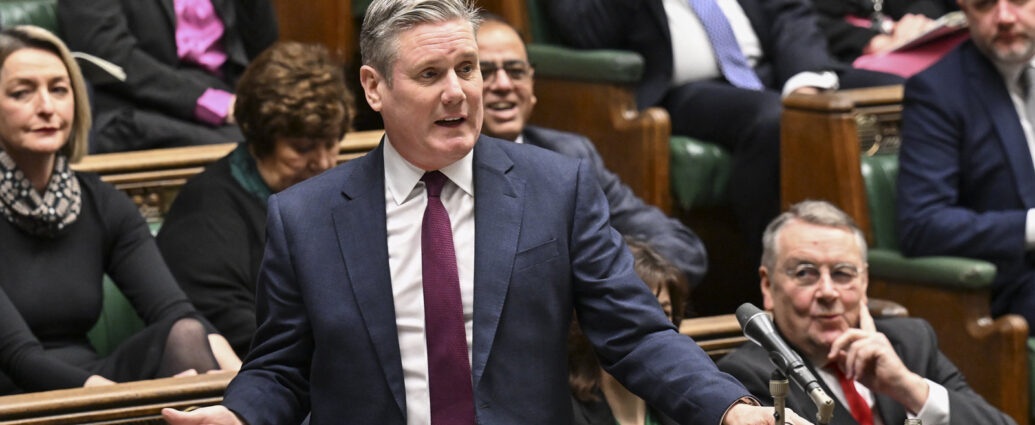Maya Dhillon
Labour has pledged equal pay rights to Black, Asian and other ethnic minority staff under a new Race Equality Act if elected.
The plans for new legislation were unveiled on Monday as part of a larger move towards addressing inequality in the UK.
The enshrinement of equal pay for racial and ethnic minorities would see them receive the same rights that exist for women.
This is Labour's plan to generate stronger economic growth and deliver fairness across the country.
Thank you to Doreen Lawrence and all of the experts whose advice has informed Labour's Race Equality Act.
— Anneliese Dodds (@AnnelieseDodds) February 4, 2024
Speaking on the Race Equality Act, Shadow Secretary for Women and Equalities Annaliese Dodds said, “Everyone in this country deserves a government that matches their ambition.”
“Labour knows that equality and growth are two sides of the same coin,” she continued.
WHAT’S IN THE ACT?
Labour’s proposed act means that people of colour would have the same full right to equal pay as women.
The Equality Act of 2010 gave women the right to equal pay for equal work. This means that women must be paid the same amount as men for the same job. The revised Equality Act will now allow equal pay to people of colour within the workforce.
“We cannot afford to treat this as an issue to investigate once the crisis is over. We must address it now.”
Since 2010, the gender pay gap has gradually declined, falling by approximately a quarter in the last decade, according to the Office for National Statistics.
Under current law, people who think they are being paid less due to their ethnicity can claim direct discrimination.
But under Labour’s plans, equal pay claims made based on ethnicity would be treated the same as those made by women – that is, more stringently.
WHERE HAS THIS ACT COME FROM?
In 2020, Labour leader Keir Starmer promised a race equality act and set up a committee including Baroness Doreen Lawrence.
It was introduced after Baroness Lawrence’s review into the disproportionate effect of COVID-19 on ethnic minorities.
Upon appointing her as a race relations advisor, Starmer said, “It is extremely concerning to see the disproportionate toll coronavirus is taking on our BAME communities. We cannot afford to treat this as an issue to investigate once the crisis is over. We must address it now.”
However, no further details on the proposals were given, leading many to criticise the party’s commitment to tackling racism.
UNISON proud to support #RaceEqualityWeek. The UK has come a long way in tackling racism, but there is more to be done & I’m backing @UKLabour plans for a new Race Equality Act to tackle structural racial inequality. pic.twitter.com/5Di0B9ZUP7 pic.twitter.com/WlS5tjiRlo
— UNISONNorthumbriaPolice (@UnisonNbriaPol) February 13, 2022
Starmer has outlined what a Labour racial equality act would look like four years later.
However, according to some groups, the plans revealed do not go far enough to tackle discrimination.
Dr Shabna Begum, interim CEO of the Runnymede Trust, insisted that Labour must use its proposed equal pay act as a platform to address the inequalities in health, housing and wealth that many minority communities face.
“The plans fall short of addressing the formidable scale of inequalities that shape the experiences and opportunities of people of colour,” said Begum.
“Committing to address structural racial inequality needs to understand that racism doesn’t simply arise when the system fails – but that racism is actually sewn into the very fabric of the system itself.”
WHAT ELSE WILL THE ACT BRING IN?
The draft act would also bring in protection against ‘dual discrimination.’
Dual discrimination is when a person faces prejudice because of two or more protected characteristics. For example, if an Indian woman thought she was being discriminated against because of her race and gender.
Currently, in that situation, the woman in question would have to bring about two discrimination claims.
“Labour’s draft act will also introduce mandatory pay gap reporting concerning ethnicity.”
Labour’s proposal would change that, meaning she would only have to pursue one discrimination claim, easing backlogs in tribunal courts.
Labour’s draft act will also introduce mandatory pay gap reporting concerning ethnicity.
Companies with more than 250 employees have had to publish their gender pay gap statistics since 2017, but it is not compulsory for ethnicity.
In addition, the proposed act would also establish a Windrush commissioner to ensure that the compensation scheme was being maintained correctly.
READ NEXT:
-
TORY CHAIRMEN RESIGN OVER RWANDA BILL AS SUNAK FACES ‘NO-CONFIDENCE’ VOTES
-
EMPOWORD EXPLAINS: THE NEW RWANDA BILL
-
LABOUR MP JESS PHILLIPS FACES ‘RACIST AND BULLYING’ ACCUSATIONS
Featured image courtesy of UK Parliament on Flickr. No changes were made to this image. Image license can be found here.

